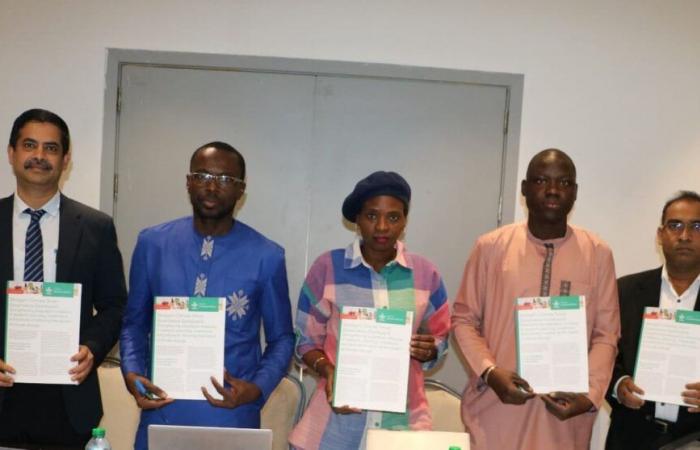In 2020, Senegal submitted its Nationally Determined Contribution (NDC), thus reflecting its ambition to place its development policy on an ecological transition trajectory, in accordance with the fundamental principles of the new climate regime defined within the framework of the Paris Agreement.
Digital platforms have become essential tools for monitoring climate policies, projects and programs, and communicating information to different stakeholders.
Taking into account the importance of digital technology, the Senegalese Ministry of the Environment and Ecological Transition (METE), through the Change Department climate, transition ecological and green financing, benefits from the support of the CGIAR program for climate resilience (ClimBeR) in order to develop a dashboard for monitoring adaptation projects, programs and initiatives.
This tool, launched three years ago by the World Water Resources Management Institute, is already implemented in Zambia, Kenya and Siri Lanka to, among other things, respond to the lack of timely, water-specific information. contextual and actionable, necessary for local communities and planners to make informed decisions on climate adaptation interventions.
The dashboard strives to foster more effective decision-making processes and facilitate the mapping of interventions to strengthen synergies between stakeholders.
The development of the tool follows a participatory and inclusive process. “ It is a tool that will allow us to have much more justifiable monitoring of climate change adaptation initiatives at the national level. It will help to spatialize interventions, to correct certain inequities at the territorial level and to have much more rational interventions in relation to the national territory.”, explained Professor Boubacar Bâ, vice-president of the National Committee on Climate Change of (Comnac) of Senegal.
He officially opened a workshop to launch this smart climate governance dashboard.
According to him, in the context of mitigation and adaptation to climate change, several partners can intervene for the same aspect without consulting each other, hence the importance of the dashboard which makes it possible to avoid duplication and to be able to make interventions much more effective.
TE/Sf/APA






